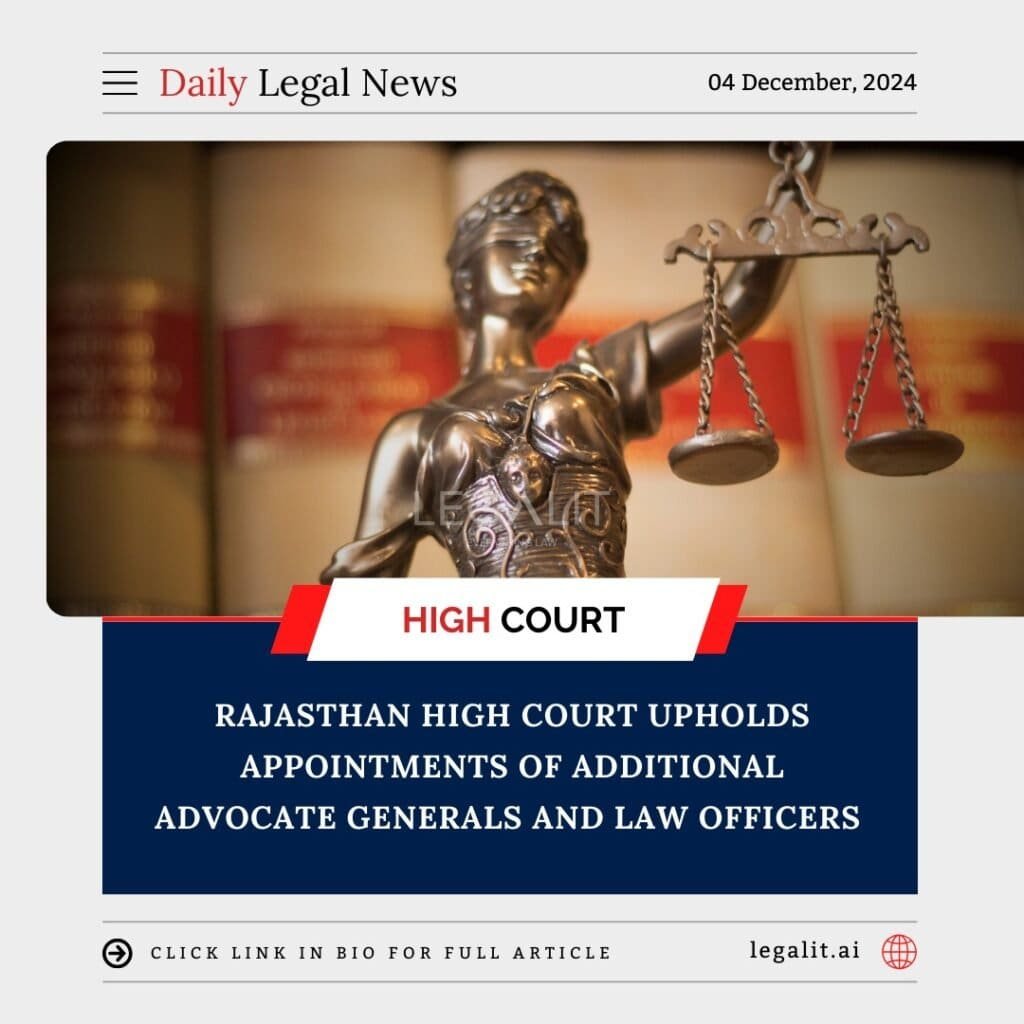
The Rajasthan High Court dismissed a petition challenging the appointments of Additional Advocate Generals (AAGs) and other law officers in the state. The court found no merit in the claims and upheld the government’s decisions as being within its authority.
Background:
The petitioner had argued that the appointments were arbitrary and lacked transparency, alleging that they were made based on political affiliations rather than merit. The plea sought to nullify the appointments and demanded the implementation of fair procedures for such selections.
Court’s Rationale:
The High Court observed that the appointments of law officers, including AAGs, fall under the purview of the executive. It held that unless specific instances of illegality or violations of constitutional principles are proven, the court would not interfere in such matters. The bench noted that the appointments were made in accordance with established rules.
Existing Measures:
Law officer appointments are governed by guidelines issued by state governments, ensuring a balance between merit and political considerations. Courts have occasionally reviewed such appointments but generally defer to the executive’s discretion unless malafide intent is evident.
Conclusion:
The Rajasthan High Court’s ruling reinforces the principle of separation of powers, allowing the executive to exercise its authority in appointments while ensuring adherence to legal standards. The decision also underscores the judiciary’s restraint in intervening in policy matters without compelling evidence of wrongdoing.